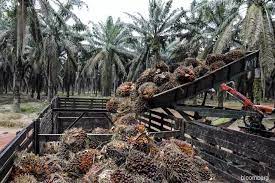Two types of biodiesel containing 40% palm oil were put through road tests in Indonesia on Wednesday, with the goal of determining by the end of the year if they are suitable for use by the general public.
The highest compulsory mix in the world is currently required by the government for all diesel sold in the nation to contain 30% palm oil.
The country that produces the most palm oil has long-term intentions to increase the amount of vegetable oil in the fuel used in everything from vehicles to airplanes in order to reduce the amount of petroleum that is imported. It performed its first test flight with palm oil and jet fuel last year. To absorb extra palm oil supplies, officials have recently pushed for a bigger share.
The fuels that will be tested over the next months are B40, which is diesel blended with 40% fatty acid methyl esters, and B30D10, which is diesel blended with 30% FAME and 10% green diesel made of refined, bleached, and deodorized palm oil.
According to Dadan Kusdiana, the ministry’s director of renewable energy, they will be put to the test on 12 of the most popular passenger car models and commercial vehicle models across distances of 50,000 km (31,000 miles) and 40,000 km, respectively.
He referred to biodiesel that contains 30 percent palm oil as “B30” and said, “We have upgraded fuel specs so that they’re better than B30.”
Users who argue that doing so requires special handling and equipment due to the fuel’s solvent action, which can erode engine seals and gasket materials, and it can solidify at cold temperatures, have resisted efforts to raise FAME concentrations in biodiesel.
During and after the trial run, each car will be thoroughly inspected to examine the effects of the fuels on everything from engine power to torque to fuel consumption to emission levels, according to officials.
The public sale of B35 biodiesel, which officials had originally predicted would happen this month, has been postponed indefinitely. A different B35 laboratory test will shortly be performed, according to Dadan.
The amount of biodiesel consumed in 2022 is estimated to be at least 10.15 million kilolitres, while B40 is predicted to increase annual biodiesel consumption by up to 3.5 million kilolitres.
18 million kiloliters of biodiesel and 120,000 metric tonnes of green diesel can currently be produced in Indonesia.

















